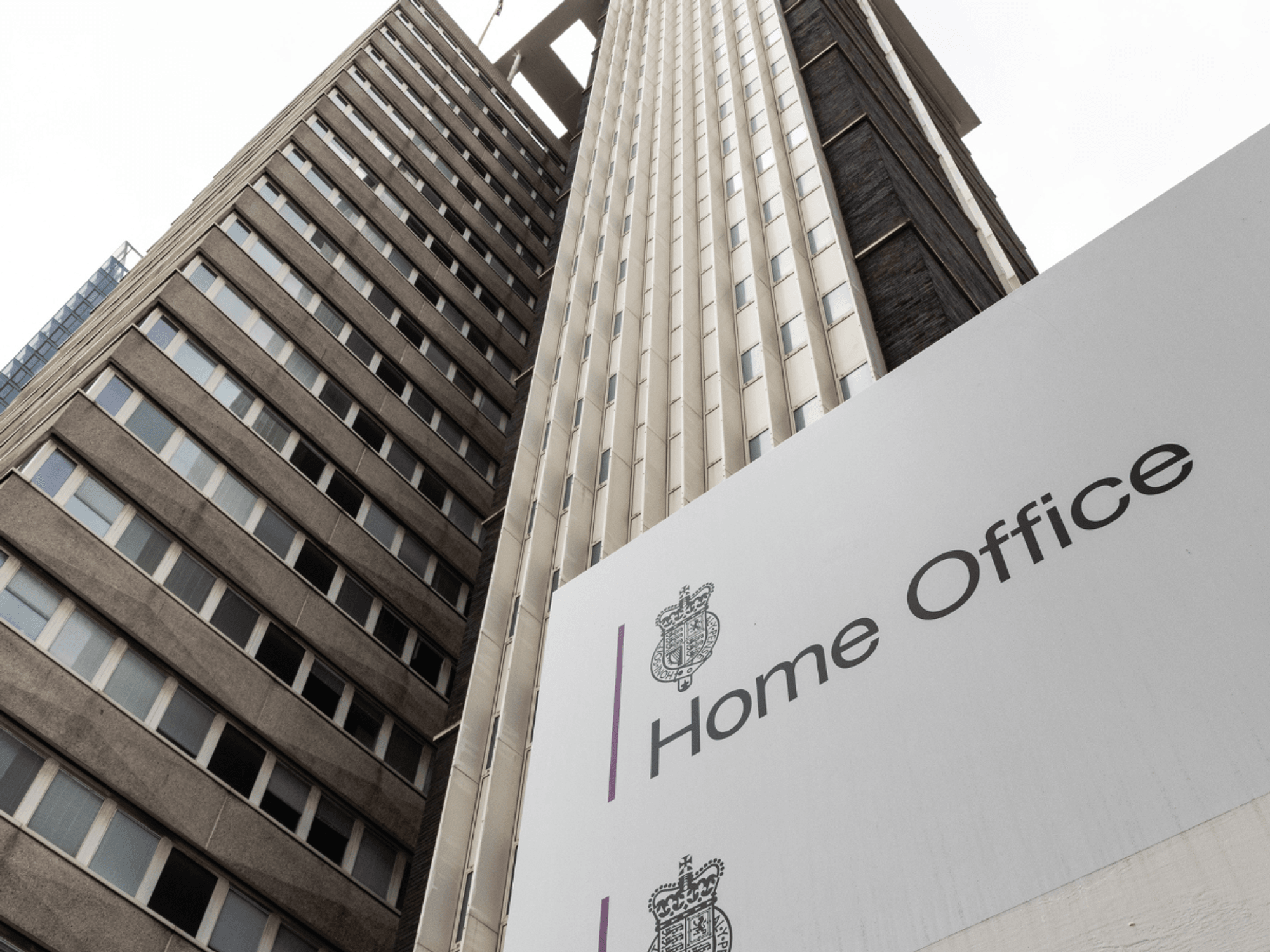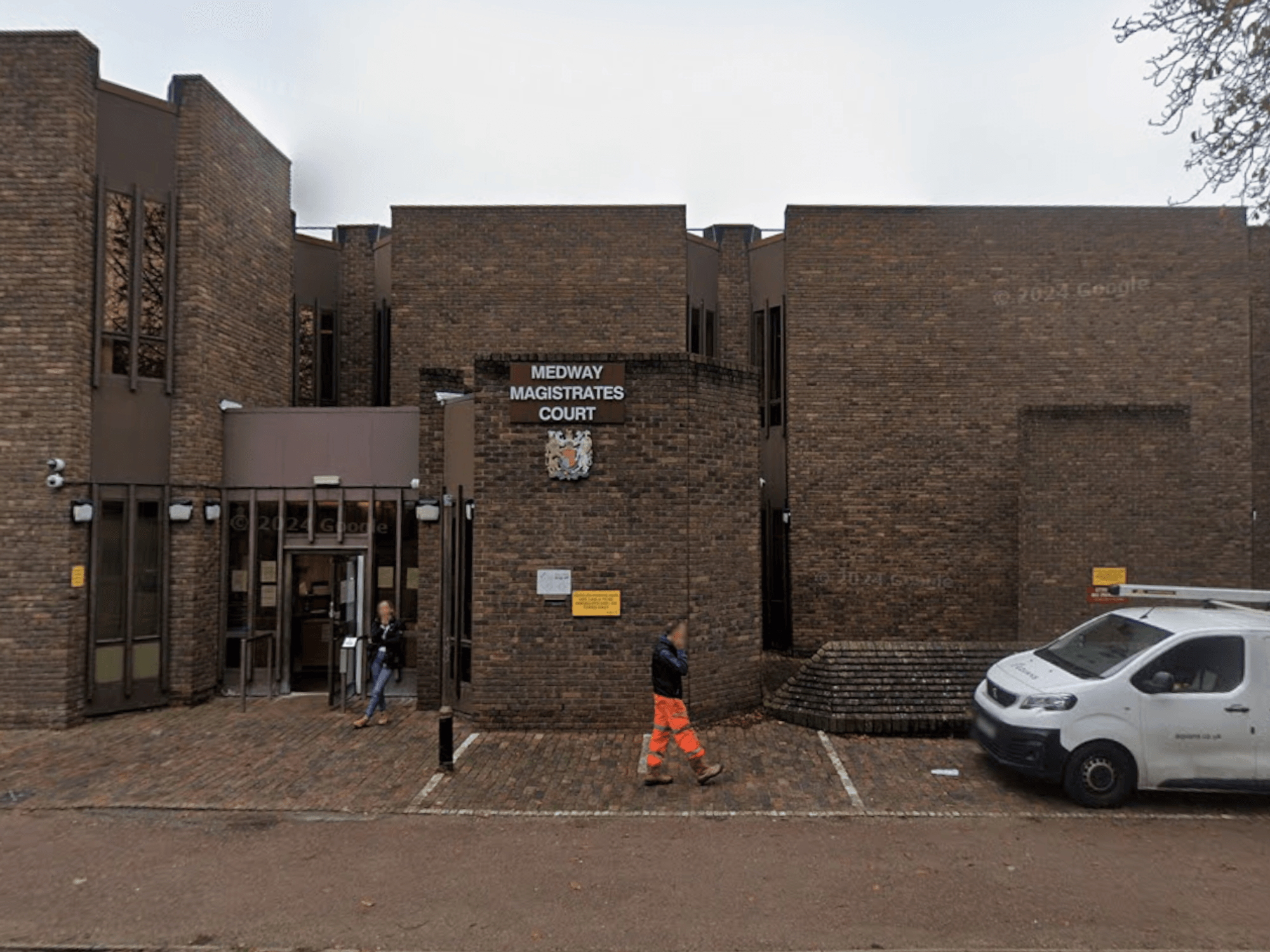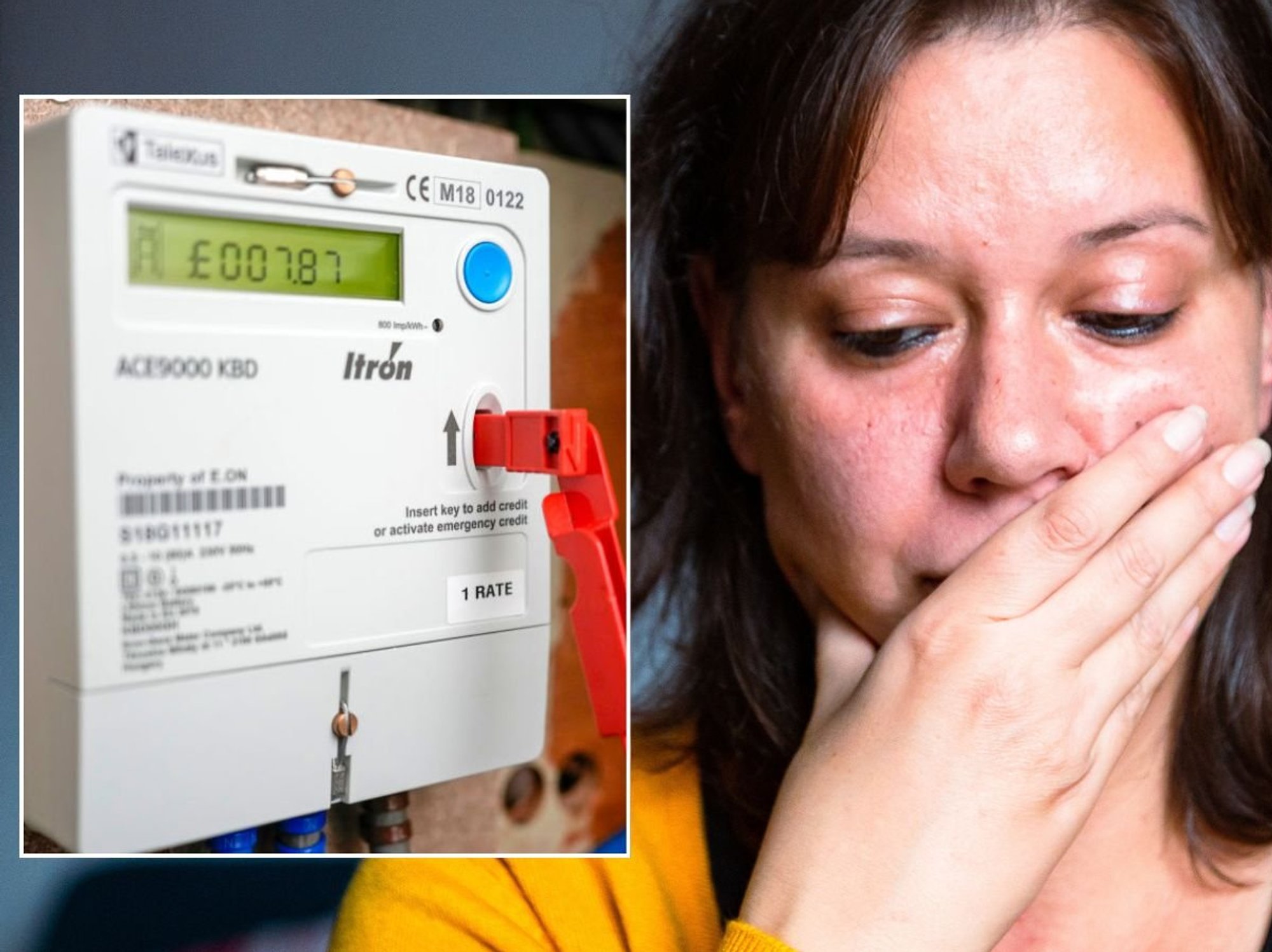BBC iPlayer is attempting to replicate one of Sky TV's biggest innovations, and YOU can test it this month
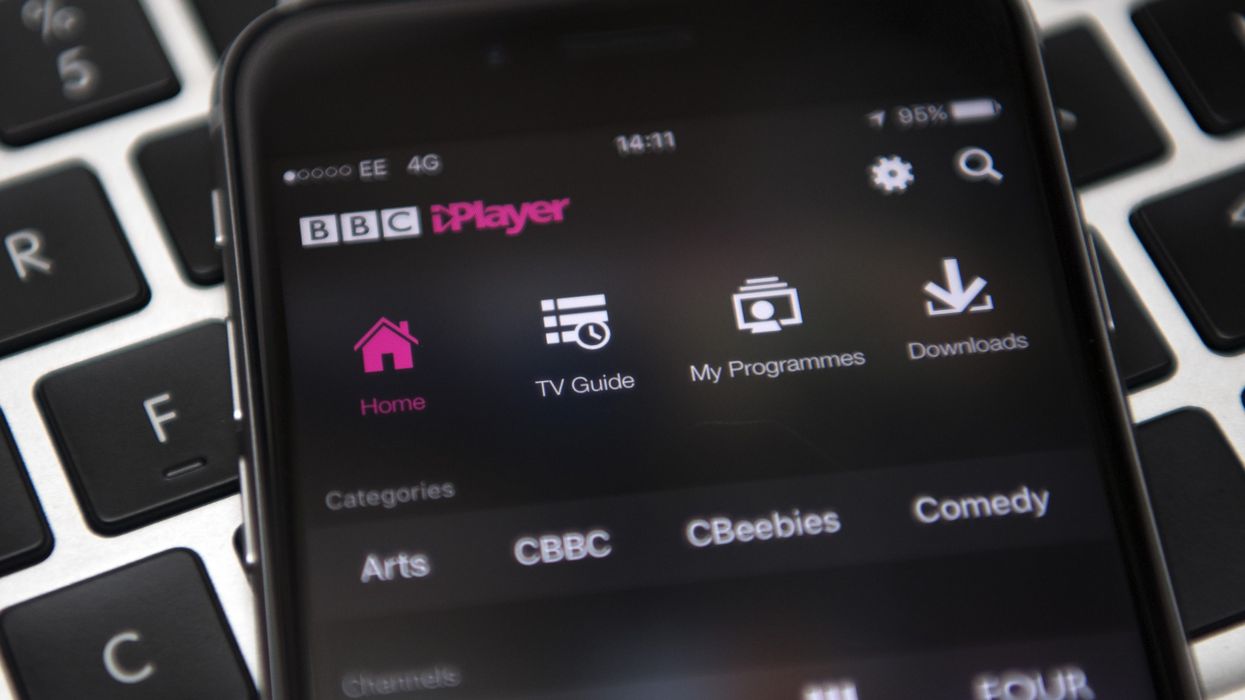
If you enable "iPlayer Beta" in your Settings, you could be one of the first to test this new system
| GETTY IMAGES
Experimental trial aims to reduce streaming delays by 32 seconds when watching Wimbledon
- Engineers at BBC iPlayer are working to eliminate the delay when streaming
- Watching via a broadband connection results in a 40-second delay
- This is particularly noticeable with live events, like sports fixtures
- Goal notifications from apps, or cheers from neighbours, can spoil a result
- BBC hopes to reduce the delay down to just 8-10 seconds
- Sky Sports was able to slash 22 seconds off its streaming delay last year
- iPlayer is trialling the new system this month and you can sign-up to test it
Don't Miss
Most Read
Tired of hearing your neighbours celebrate goals before the stream on your television has caught-up to the action? Or finding out the final result of a critical sports fixture from the ping! of a notification on your smartphone before the final whistle on your stream?
BBC is in the midst of trialling a new low-latency streaming experience that could make these headaches a thing of the past. The nationwide test, started on June 4, aims to slash the typical 40-second delay between traditional broadcasts and online streams down to just 8-10 seconds.
If that sounds familiar, Sky was able to slash the delay between something taking place in a stadium and the footage being delivered to your telly via Wi-Fi by a whopping 22 seconds last year. Bundled with a free update to SkyOS 1.3 to its Sky Glass and Sky Stream devices, the UK broadcaster says that watching on Sky Stream and Sky Glass, sports fans will now experience "give or take" the same delay as satellite broadcasts on Sky Q or Sky+ HD.
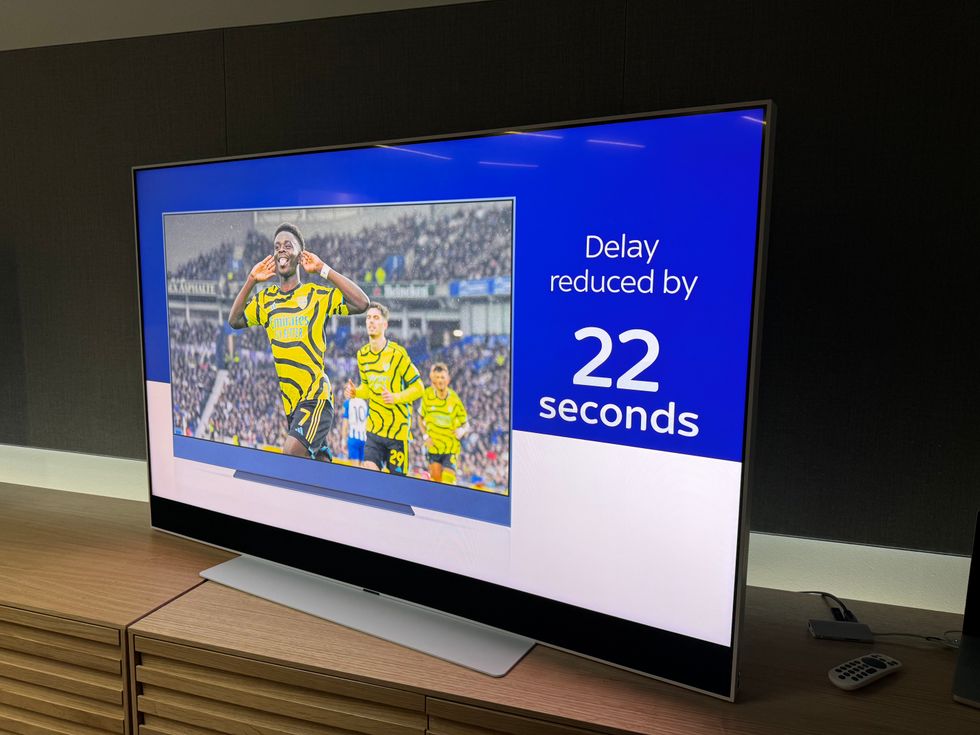
Sky Sports Main Event was the first to see the pioneering new technology from SkyOS 1.3 last year, which dropped the delay from roughly 30-seconds down to 8-seconds between the action taking place in the stadium and showing on your screen at home
|GB NEWS
The dramatic drop in latency will work across live broadcasts in Ultra HD and HD, GB News was told.
And now, BBC iPlayer is looking to implement a similar improvement to its streams.
The experimental new feature is currently being offered to select iPlayer users watching BBC Two between 9am and 5pm. The timing is particularly significant with Wimbledon and Glastonbury approaching, when millions will be streaming live coverage. If you want to test the system yourself, you'll need to enable beta mode within BBC iPlayer, which signals to the broadcaster that you're happy to Guinea Pig newer, unfinished features.
The reduced latency brings technical challenges. With less time to adapt to network changes, streams may become more prone to buffering. The BBC's solution involves playing video slightly faster after any interruption to maintain low latency without viewers missing action.
Discussing the improvements, BBC Lead R&D Engineer Chris Poole wrote in a blog post: "Reducing internet delivery delays to match traditional broadcast means less time for the streaming client to adapt to changes in network conditions.
"This in turn makes it harder to avoid ‘stalling’ where video playback stops and viewers have to wait for a period of ‘rebuffering’ before the stream continues. We have worked on ways to solve this and have modelled, tested and analysed the performance.
"That work suggests that we should be able to achieve delays comparable to broadcast. But, since everyone’s internet connection is different, the only way to be sure how well it works in the real world is to try it in the real world."
If this trial goes as planned, the team at BBC iPlayer will move ahead with fine-tuning the stream and testing additional variants to maximise reliability.
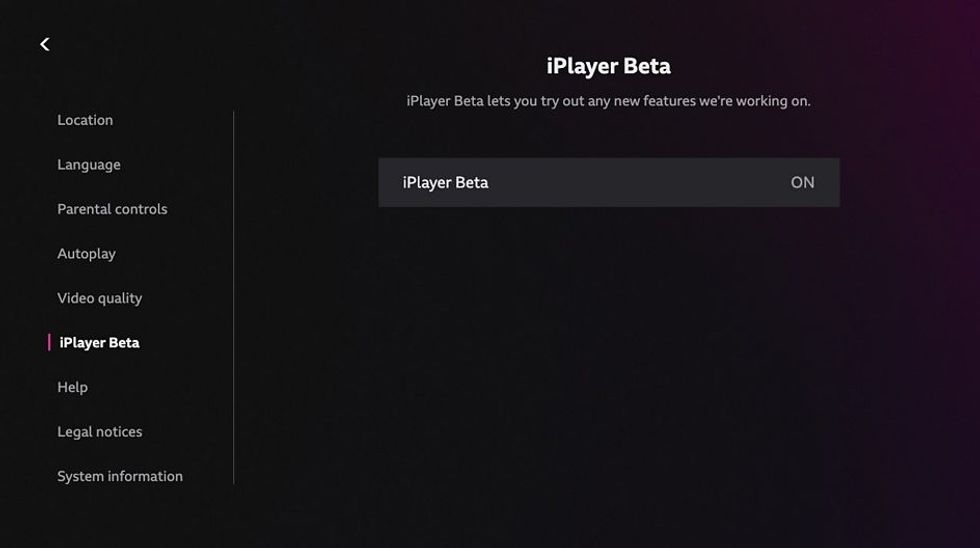
You'll need to dig into the Settings menu of your BBC iPlayer app on compatible hardware and enable "iPlayer Beta" to access the early test streams
|BBC PRESS OFFICE
Illuminating some of the behind-the-scenes discussions that are taking place within the BBC about this new technology, Chris Poole added: "With low latency streaming, we also have to think about what should happen if users do experience some rebuffering. Should the stream just resume, leaving them further behind for the rest of the programme? Should the stream catch up, skipping a few seconds in the process?
"Neither is ideal. Instead, our trial stream will play slightly faster after a stall, aiming to maintain low latency but without the viewer missing any of the action. Doing this without the viewer being aware requires some functionality that is not available on all TVs.
"To get the best quality data on the reliability we can achieve at delays comparable to broadcast, we are starting our trial using only devices that support this variable speed playback capability and will maintain the target latency we have set. Later on, we may extend the trial to other devices too."
For now, the BBC iPlayer is limited to specific devices that support the required technology. Currently, only the 3rd generation Amazon Fire TV Stick, 2nd generation Amazon Fire TV Stick 4K, and Samsung Smart TVs with the model numbers CU8000 and CU8500 are compatible.
To access the low latency stream, you'll need to enable iPlayer Beta in the Settings menu and make sure your location is set to England or Scotland.
The experimental stream isn't available for BBC Two Wales or BBC Two Northern Ireland, BBC explained.
While this is an exciting advancement for the BBC, don't expect all streams on BBC iPlayer to offer the same latency as traditional broadcasts via aerial.
As the BBC Lead R&D Engineer summarises: "This trial is only our first step in trialling low latency streaming to the public: viewers should not expect that all live internet viewing will match the delays on broadcast at the end of the trial. Gradual improvements are more likely. This trial is aiming to assess the reliability of the delivery of low latency media over the internet.
"More work is needed to build a fully resilient, fault tolerant system that can scale to the size of audience that the BBC serves for major sporting events. Since common ways to build in resilience to failure themselves add delay, achieving this for low latency streams remains a challenge."
Nevertheless, it's critical work as the way most households watch live television changes. Streaming live television over a full-fibre broadband connection is fast becoming the preferred way to tune in for millions of Britons. It means you can position your television anywhere at home — not just where the aerial or satellite cable comes through the wall. You won't need to worry about bad weather disrupting the signal either.
And those living in apartment blocks or rented accommodation who can't install a satellite dish will still be able to watch.
This shift towards streaming has resulted in not only the BBC investing heavily in its iPlayer service, but Channel 4 now only commissioning new shows with streaming potential, the team behind Freeview launching an internet-powered successor called Freely, EE debuting an all-new set-top box, and Sky slashing the number of satellite dish engineers at the company due to dwindling Sky Q installations, as its broadband-powered Sky Glass 55" became the best-selling Smart TV in the UK last year.
More From GB News






